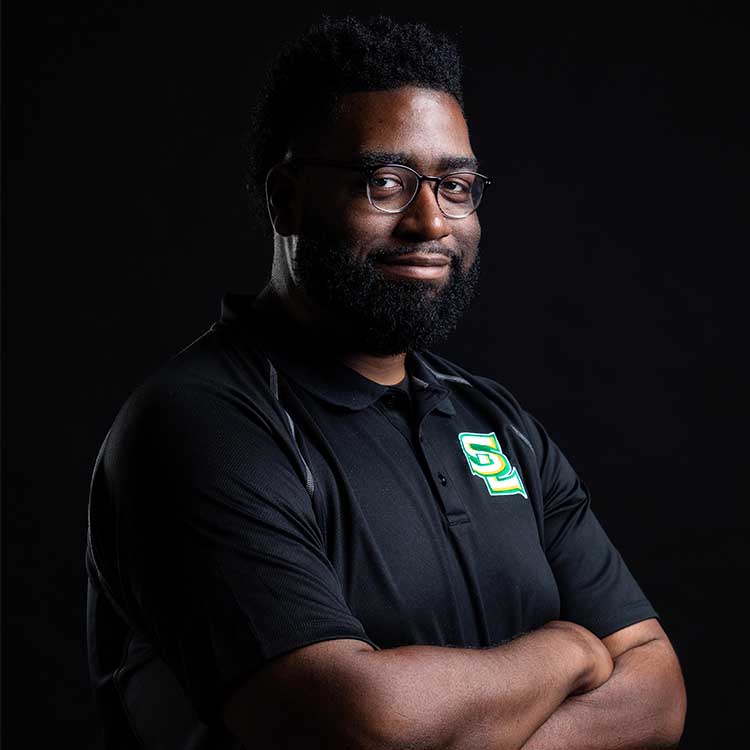
Christopher Turner was given a blank canvas when he decided to launch esports at the Southern University Laboratory School in Baton Rouge, La.
The one caveat given to him by the school’s director, Herman Brister, was this: Stay on brand.
Turner, an artist and educator, has done that well in his 10-plus months at the helm as esports instructor at Southern Lab, a small preparatory school with a rich, 98-year history of fostering education innovation for its K-12 population.
Because of Turner’s eye for visuals and his tireless efforts shaping this start-up program, Southern Lab quickly has become a recognized name in the high school gaming space.
Active on social media through the Geaux Play podcast he hosts, as well as uniquely Louisiana pitches such as “crawfish boil” events, Turner is building a robust esports brand at Southern Lab. In his first year, he has introduced gaming, found several partners, helped coach up a national championship player in NBA 2K and is in the process of revamping a new facility.
He also developed that striking logo that has become a signature image for the program.
 “I knew my branding had to be on par with a collegiate level brand of esports or a professional team, because at the end of the day, nobody’s going to pay attention to you if you don’t,” Turner says. “We may not have all of the resources or answers, but we’re going to make it look like we do. That’s how you get buy in from your parents. That’s how you get buy in from your students. That’s how you get buy-in for your community.
“I knew my branding had to be on par with a collegiate level brand of esports or a professional team, because at the end of the day, nobody’s going to pay attention to you if you don’t,” Turner says. “We may not have all of the resources or answers, but we’re going to make it look like we do. That’s how you get buy in from your parents. That’s how you get buy in from your students. That’s how you get buy-in for your community.
“When I got here, Brister made it clear: Kelly green is the green we use. The yellow, this is the color we use. Make sure you stay on brand. Make sure the ‘SL’ is present everywhere you go. Even though everyone knows the kitten with the controller in their hand, that ‘SL’ is there too, pushing our mission for the pillars we stand on. At the end of the day, branding is just communication. Being in the digital age, you have to make sure your digital imprint is on brand all the time, that it’s hitting all cylinders.”
The man who was working at an art gallery before being lured into education – “I didn’t see myself in education; education found me” – knows that while design and messaging are important, ultimately the main goal of the program and the school is empowering students on a college-ready path.
“I want esports to be the chocolate that covers the broccoli,” Turner jokes. “We are blessed in that our kids can walk out the front door and go take an AP course in a real college classroom (at Southern University) and walk back and finish. But let’s build bridges to the engineering school. Let’s build the bridges to the architect school, web design, mass comm and let esports be the driving force behind those bridges being built.”
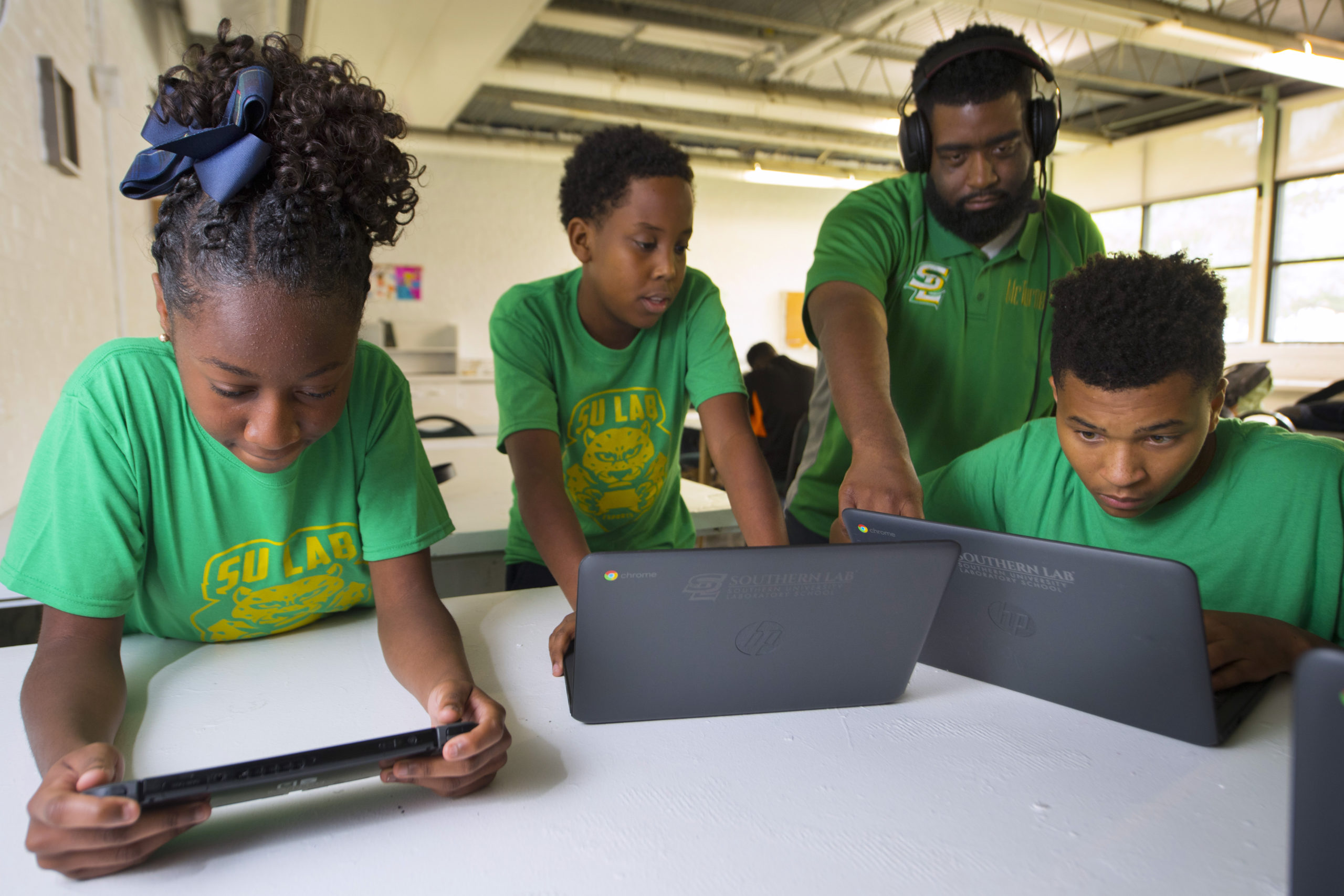
Starting it up
Southern Lab is on the campus of Southern University and A&M College, a historically black university known for its engineering, nursing and nationally recognized ROTC programs as well as its athletic participation in the Southwestern Athletic Conference. There are approximately 320 students at Southern Lab, which helps provide an intimate training ground for kids to creatively grow and flourish, in both academics and its extracurricular programs.
One of its latest endeavors has been esports, or competitive video gaming. Like most schools in a launch, the program has faced its challenges, most notably funding. But because of Turner’s background in both art and business, he and Brister have worked together to develop strategies on a five-year business model for the program.
“We game together maybe a couple days a week and our families know each other,” says Turner, who arrived at Southern Lab in July 2019. “We’re both passionate about education. And he lets me do what I can do best.”
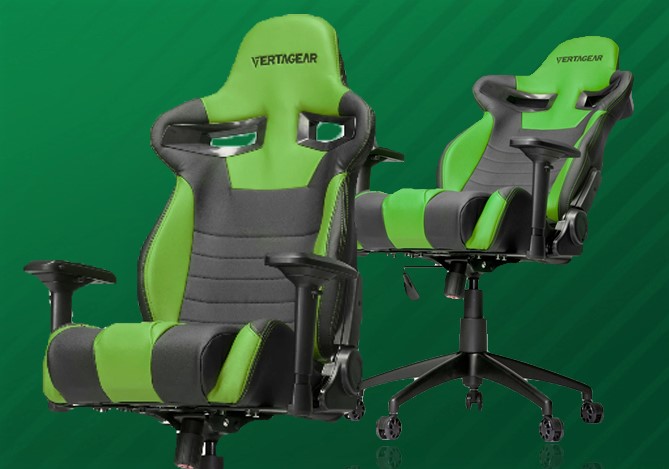 They are in the process of revamping a facility for gamers and have made several pitches to get gaming PCs in that room. On Thursday, Southern Lab struck a partnership with Vertagear to provide new gaming chairs for students. Turner has also utilized monies from a $10,000 grant to make improvements to the space.
They are in the process of revamping a facility for gamers and have made several pitches to get gaming PCs in that room. On Thursday, Southern Lab struck a partnership with Vertagear to provide new gaming chairs for students. Turner has also utilized monies from a $10,000 grant to make improvements to the space.
“The equipment can be expensive, but we’re going to get it done,” Turner says. “Every dollar, every penny counts. It might not be what I want it to be Phase I, but I’m going to make the best of what we can get.”
The mixed-use facility will be for the esports teams and also the student community. The goal: to be as close to a collegiate program as possible.
“We want to host schools,” he says. “We want to build a culture of esports within the community. This isn’t just about developing better gamers, it’s about cultivating the potential of all students, staff, and administration to help learn, grow, and thrive together. We want to start something special.”
Despite some hurdles, Southern is well on its way.
“It’s been constant work, but it’s been constant successes,” Turner says. “Right out of the gate, I had multiple players in the playoffs in the High School Esports League. When you look at a first-year program, you’re looking at building it, you’re not looking to make an impact. I’m over the moon.”
Here comes Troy
From the start in its small space on campus, Turner’s esports team took off, with multiple players excelling in the High School Esports League Fall Majors Championship. Senior Timotheus Moore made it all the way to the finals, and three of Southern Lab’s players cracked the Top 16.
But with Moore soon graduating and two other players telling him they were transferring, Turner’s hard work was being challenged. Some schools position esports as a casual extracurricular club; others want to compete and win. Turner’s teams, bolstered by that early success and the interest they’ve garnered, are intent on challenging the best.
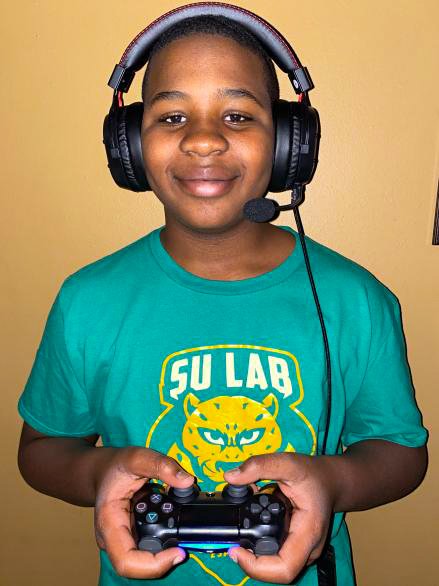
Seeking ways to recruit new talent, Turner seized on an opportunity to host an NBA 2K esports event during homecoming, one of the biggest times of the year for Baton Rouge and Southern University. He brought plenty of swag, including bags from HSEL and gift cards, and invited in all players. Competing in the bracket, an eighth grader named Troy Murphy stood out by sweeping the field. Right away, Turner’s eyes lit up.
“Why didn’t you come to me and tell me you could play like this?”
After some hard pitches to Murphy and his parents, including esports’ potential pipeline to a future beyond the games, they were all on board.
Soon, Murphy got some guidance from a few high-profile friends that Turner had made through the NBA 2K leagues. He entered the High School Esports League’s Spring Majors, and just like he did on campus, he swept the field, winning the first national title for Southern Lab.
“You’re talking about a kid, a 4.0 student, real humble, not disrespectful at all,” Turner says. “Parents really did a good job with him. He was already great at NBA 2K. But to see him from that point to where he is now, I can only imagine what he’s going to look like in four years. He is probably going to be unstoppable. Having a streamline of support and a school behind him just builds more morale for the kid. He’s talking about going to school for engineering, and that’s feeds into this esports ecosystem.”
Looking ahead
Turner is already looking forward to Year 2, surveying his team’s play, working on that facility, and most importantly, seeing that future for his students.
He says his goal is to “eventually have some CTE built into the program, where the kids are walking away with some certifications within those fields – streaming, graphic design or what have you.” He is also looking at more involvement with the acclaimed North America Scholastic Esports Federation as well as implementing the “Gaming Concepts” curriculum developing by Kansas principal Dr. Kristy Custer and teacher Michael Russell.
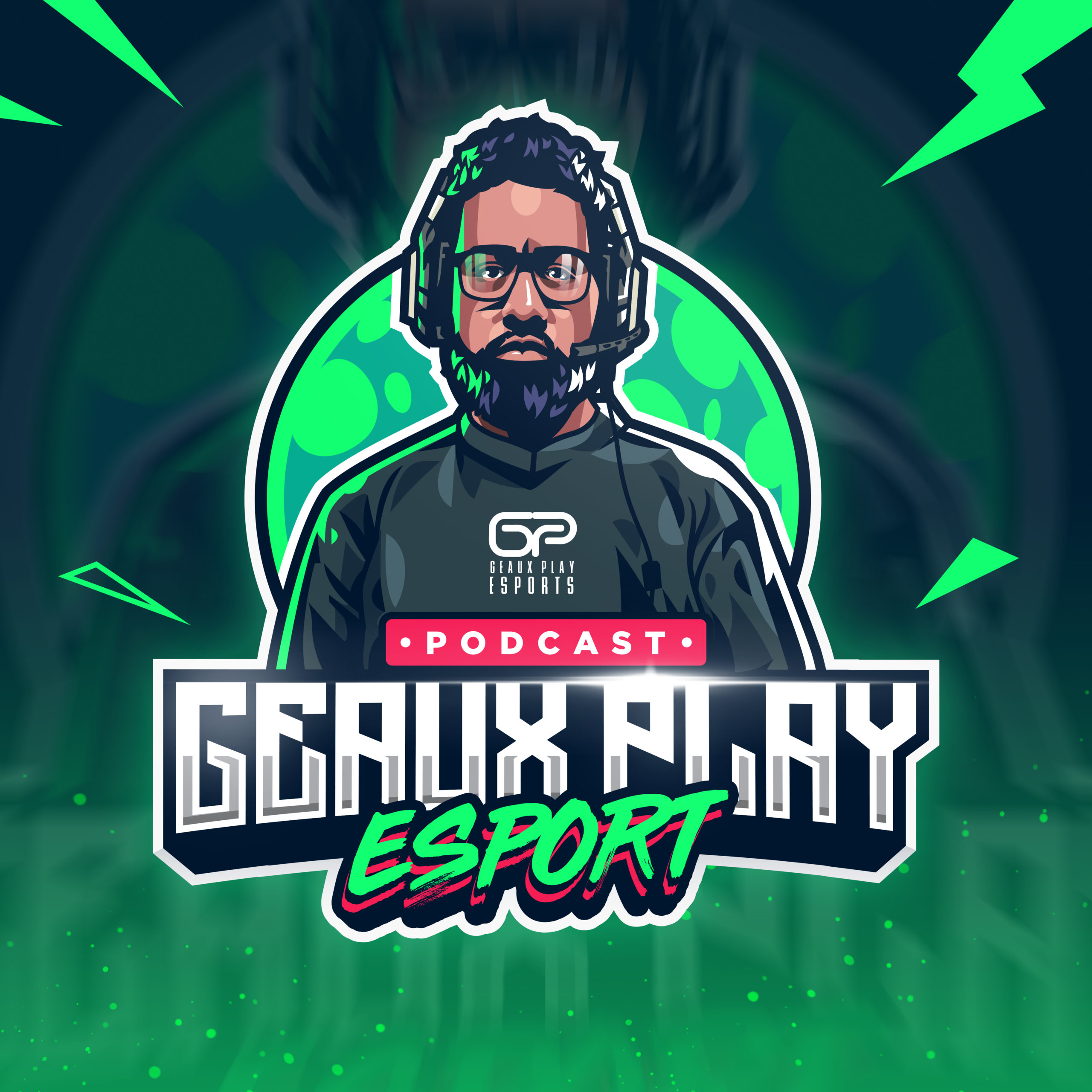 He wants to expand the team’s offerings into several other titles, possibly League of Legends, Rocket League and even first-person-shooter games for 11th and 12th graders, as well as Minecraft for his younger students. In addition to the high school team, he is planning to launch a middle school team in the Middle School Esports League this fall.
He wants to expand the team’s offerings into several other titles, possibly League of Legends, Rocket League and even first-person-shooter games for 11th and 12th graders, as well as Minecraft for his younger students. In addition to the high school team, he is planning to launch a middle school team in the Middle School Esports League this fall.
Beyond that, he hopes to impart some of his knowledge on entrepreneurship to his players, knowing they too will be creating their own brand and potentially profiting from their likenesses someday.
“It opens up another another channel for not only educating the students but preparing them for what’s probably going to happen if they’re at the top of their performance level,” he says. “You don’t have to have athletic ability to get the same kind of bragging rights.”
As he continues to work on promoting the program, he wants to forge more partnerships, “getting other brands to say hey, we wouldn’t mind putting our brand next to your brand, running a pilot program to see what happens.”
One thing is certain. He won’t be resting on the laurels of a successful first year.
“I’m not going to stop,” Turner says. “Esports has taken over my life. It’s been a hell of a ride. But for me, my job is just beginning.”
Chris Burt is a reporter and editor for District Administration and is the Program Chair for the Academic Esports Conference & Expo. He can be reached at [email protected]

